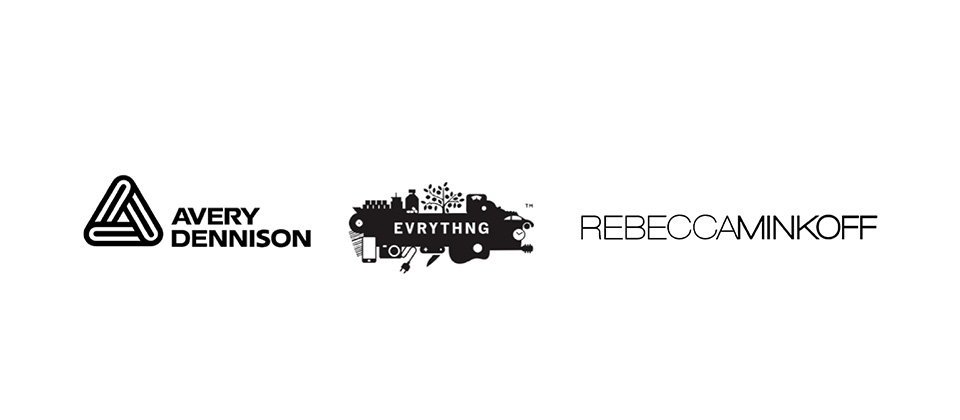NEW YORK – A new line of smart handbags from Rebecca Minkoff which hit stores last week offering customers exclusive, new personalized experiences with the brand, is the latest in connected consumer products to join the growing Internet of Things (IoT). And new research says the emotional “conversations” between such products and the consumers who buy them are conversations to which brands should pay attention.
Minkoff’s #ALWAYSON bags feature a code that, when scanned by a smartphone, will enable owners of the bags to receive exclusive offers, product recommendations, and video content from Rebecca Minkoff.
“We’ve always wanted to enrich our customers’ lives and deliver a brand experience that extends beyond the products themselves,” commented Uri Minkoff, co-founder and CEO, Rebecca Minkoff. “By bringing #AlwaysOn smart features to the bags, we’re opening doors to a world of amazing, hand-picked experiences we think our customers will love, while making it easier than ever for them to access special offers, recommendations, and other loyalty rewards.”
Through these smart products, Minkoff plans to acquire new, direct customer relationships and insights – especially important when products are sold through third-party retail channels. This will inform marketing and business decisions for the brand and drive #AlwaysOn consumer engagement. Minkoff’s 2018 smart product roadmap, leveraging EVRYTHNG’s IoT Smart Products cloud platform and Avery Dennison’s smart tag solution, includes using geo-targeting to reach additional partners within the lifestyle, wellness and beauty realm.
A University of Sheffield (U.K.) researcher has developed a framework whereby data from products like the #ALWAYSON bag can be used to help brands better understand, anticipate and respond to the emotions of customers, triggering greater consumer engagement and sales at a time when brand loyalty especially among millennial shoppers, is receding. The research was commissioned by EVRYTHNG, the market-leading Internet of Things Smart Products Platform and Avery Dennison, a global leader in apparel and footwear branding, labeling, RFID and digital solutions. Minkoff’s #ALWAYSON is built using Avery Dennison’s Janela™ solution and the EVRYTHNG Smart Products Platform.
Dr. Phillip Powell, research fellow at the Institute for Economic Analysis of Decision-Making (InstEAD) at the University of Sheffield and a chartered psychologist of the British Psychological Society, has identified a strategic framework in a report called Digital Emotional Intelligence (DEQ), introduced at a briefing this morning in New York.
Dr. Powell says brands should use real-time data from an exponentially growing number of digitally capable consumer products, and other connected sensors and sources, to interact with customers and better understand their emotions, associations, memories and moods, all toward encouraging and motivating consumer purchase and loyalty behaviors.
The need for brands to find new ways to harness the data from “connected” products couldn’t be more urgent. According to the report, 90 percent of consumer products companies lost market share in 2015 and 62 percent suffered declining sales, much of it to agile, digitally native companies. The need for a new communications paradigm comes as more than 800 billion digitally capable consumer products are expected to ship by 2020.
Dr. Powell believes businesses that are able to “mine rich, new seams of data to improve their knowledge of, and relationship with, customers will dominate.”
“Digital emotions,” according to the report, are physical emotions that are influenced or triggered by consumer interactions with smart products and digital technology. As noted in the research, a DEQ framework can help brands digitally sense and predict emotional responses and connect with consumers more empathetically.
The research follows Avery Dennison and EVRYTHNG’s partnership in #BornDigital™ clothing and footwear, giving more than 10 billion items a digital life and representing the world’s largest deployment of internet of things (IoT) products.
“At a time when the retail industry is in complete transformation, connected products with a unique digital identity are paving a way for brands to not only easily capture stock visibility, but also engage on an emotional level with their consumers. This is key to winning in the marketplace” explained Bill Toney, vice president, Global RFID Market Development, Avery Dennison.
The report notes that employing a DEQ framework can lead to competitive advantage for brands at a time when increasing loyalty is critical– 67 percent of American millennials admit to having switched from one of their favorite brands in the last year.
“In today’s always-on world, brands that use digital technology to connect more emotionally, personally, and contextually with consumers, in the moment, will win,” said Andy Hobsbawm, co-founder and CMO, EVRYTHNG. “By connecting physical products and retail environments to the web, brands can unlock new flows of valuable real-time data to transform their customer relationships—not to mention their supply chains and revenue models,” he added.
The DEQ framework was discussed in detail at a breakfast briefing in New York at Avery Dennison’s Customer Design and Innovation Center (CDIC). It was moderated by Piers Fawkes, founder and editor-in-chief of PSFK, and included insights from panelists Uri Minkoff, president and CEO of Rebecca Minkoff; Bill Toney, vice president, Global RFID Market Development at Avery Dennison; Andy Hobsbawm, co-founder and CMO of EVRYTHNG; and Liz Bacelar, founder of Decoded Fashion and The Current.
To download the “Digital Emotional Intelligence” report, please visit AveryDennison.com/DEQ.

